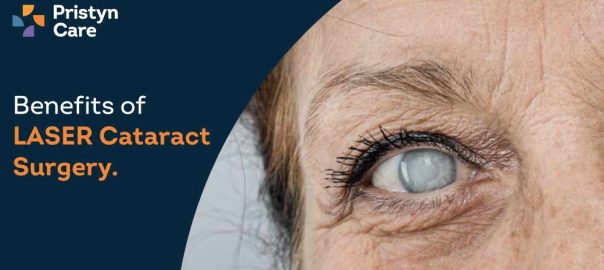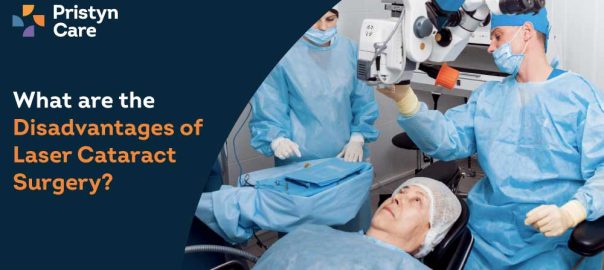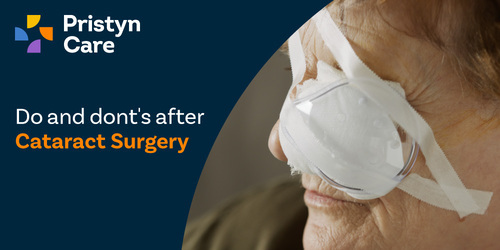![]() Views: 151
Views: 151
How Long Does It Take for Cataract Surgery to Heal?
Cataract surgery is a common procedure performed by eye specialists or ophthalmologists. This surgery is essential for individuals suffering from cataracts, a condition that clouds the eye's natural lens, leading to blurred or dimmed vision. It's beneficial to understand the procedure, healing process, and what to expect post-surgery.
Dedicated Support at Every Step!
Our Doctors are available 24 hours a day, 7 days a week to help you!
Call Us0806-541-7961Table of Contents
Brief Overview of Cataract Surgery
Understanding the Healing Process
Understanding the healing process post-surgery is of paramount importance. It enables one to anticipate various stages of healing and manage expectations. The body needs time to adjust post-surgery, and understanding this process encourages patience and adherence to post-surgery care instructions.
Description of the Procedure
In cataract surgery, the clouded lens is removed and replaced with an artificial lens. It's performed under local anaesthesia, making it a relatively comfortable procedure. The operation is usually completed within an hour, and most patients go home the same day.
Types of Cataract Surgery
There are primarily two types of cataract surgery:
- Phacoemulsification: This is the most common type where ultrasonic waves are used to break up and remove the cataract.
- Extracapsular Cataract Extraction: This method is used for advanced cataracts where the lens is removed in one piece.
Post-Surgery Care Instructions
After your eye surgery, you'll be given several care instructions. These include using prescribed eye drops, avoiding strenuous exercise, and wearing an eye shield at night. Following these instructions will ensure a smooth recovery period.
Common Side Effects and Symptoms
Post-surgery, you may experience mild discomfort and blurred vision; these are common side effects and should not alarm you. If these symptoms persist or worsen over a few days, contact your doctor promptly.
Recovery Timeline
The recovery timeline varies amongst individuals but below is a general guideline:
- First 24 hours: Rest your eyes. Avoid rubbing them and use prescribed eye drops.
- First week: You may notice changes in your vision. Attend all follow-up appointments with your doctor.
- First month: Improvement in vision should be noticeable. Continue to adhere to any activity restrictions until advised otherwise by your doctor.
Remember, each individual's recovery process is different, so it's crucial to follow your doctor's advice tailored to your situation. The information provided here is a general guide and not a substitute for professional advice from your healthcare provider.
No Cost EMI, Hassle-free Insurance Approval
Factors Affecting Healing Time
Several factors affect the healing time of different individuals based on their personal conditions. These are:
Age and Overall Health
Your recovery time after cataract surgery can be impacted by your age and overall health. As we age, our bodies naturally take longer to heal. Additionally, individuals who maintain a healthier lifestyle, including regular exercise and a nutritious diet, typically bounce back quicker post-surgery compared to those with poor health habits.
Type of Cataract Surgery
There are different types of cataract surgeries available, and the healing time can vary based on the chosen procedure. Phacoemulsification, for instance, involves smaller incisions and usually has a shorter recovery period compared to traditional extracapsular cataract extraction (ECCE).
Pre-existing Eye Conditions
If you have pre-existing eye conditions like glaucoma or macular degeneration, it may lengthen your recovery process. It's essential for your doctor to be aware of these conditions prior to surgery to plan your individualised care.
Managing Discomfort and Complications
Now that we've examined factors affecting healing time, let's delve into managing discomfort and signs of potential complications post-surgery.
Tips for Managing Discomfort
Following cataract surgery, it's common to experience some discomfort. Here are a few tips:
- Use prescribed eye drops: Your doctor will prescribe certain eye drops to prevent inflammation and infection. Make sure you use them as instructed.
- Avoid strenuous activities: Rest is crucial for speedy recovery. Avoid heavy lifting or any strenuous activities for a few weeks.
- Protect your eyes: Wear sunglasses to shield your eyes from sunlight and dust.
Signs of Potential Complications
While complications are rare, it's crucial to be aware of the signs. This could include:
- Persistent pain not relieved by over-the-counter painkillers
- Vision problems such as seeing flashes of light or sudden loss of vision
- Increased redness in the eye
Remember, if you experience any of these symptoms, reach out to your family doctor or visit the nearest casualty immediately.
Your healing time after cataract surgery can be influenced by several factors. By being proactive about your health and following your doctor's advice, you can manage any discomfort and prevent potential complications for a smooth recovery.
Long-Term Vision Changes
Over time, you're likely to notice some changes in your vision. You might find your sight improving dramatically. This is a common outcome, especially after procedures like cataract surgery or laser treatment for vision correction. Despite this, it's important to understand that everyone's eyes are different, and the degree of improvement may vary from person to person.
Expected Improvements in Vision
Typically, people can expect their vision to become clearer and more focused following their procedure. However, this does not mean that you will have perfect vision. In some cases, even with the maximum possible improvement, you might still need glasses for certain activities like reading or driving.
Possible Need for Glasses or Additional Procedures
You should be prepared for the possibility that you might still need glasses even after your procedure. In addition, further procedures might be necessary in certain situations. For instance, if you have undergone a cataract operation and later develop secondary cataracts, a simple laser procedure can help to restore clear vision.
Lifestyle Adjustments During Recovery
After any eye procedure, it's vital to take good care of your eyes during the recovery period. This typically involves making a few changes to your daily routine.
Recommended Activities and Exercises
To aid in your recovery, try to rest your eyes as much as possible. Avoid straining them with activities like reading or using screens for prolonged periods. Simple exercises like gentle eye rolling can help enhance blood circulation around the eyes and speed up healing.
Precautions to Take
Finally, it's essential to follow all the advice given by your doctor regarding precautions during your recovery phase. This might include wearing protective eyewear, avoiding vigorous physical activity, and not rubbing your eyes. Don't forget to attend all follow-up appointments so that your doctor can monitor your progress and address any concerns promptly.
When to Seek Medical Advice
In everyday life, we often experience minor health issues that can be managed at home. However, there are certain symptoms and circumstances that warrant immediate medical attention. You should seek advice from a doctor if you experience sudden or severe pain, major injuries, difficulty breathing, severe allergic reactions, or signs of stroke like sudden weakness or numbness on one side of the body, slurred speech or difficulty seeing. These signs might indicate serious health issues and timely consultation with a doctor can make a significant difference in recovery.
Signs that require immediate consultation with an ophthalmologist
Your eyes are one of the most essential sensory organs, enabling you to perceive the world around you. It is thus crucial to keep an eye on their health. Certain signs should trigger an immediate visit to the ophthalmologist. These include sudden loss of vision or blurry vision, eye injury or pain, double vision, persistent floaters or flashes of light in your field of view, and redness or swelling of the eye or eyelid. If you are living with conditions like diabetes or hypertension, regular eye check-ups should be part of your healthcare routine. As we transition to discuss the importance of regular follow-up visits, consider these guidelines as crucial stepping stones to preserving your overall health.
Importance of Regular Follow-up Visits
Regular follow-up visits to your family physician are vital in maintaining good health and detecting any potential health issues early. They provide an opportunity for doctors to review your medical history, conduct necessary tests and monitor any progress or changes in your health condition. These visits also allow you to raise any health concerns you might have and discuss options for preventive care. Remember, prevention is always better than cure! In conclusion, being proactive about your health, recognising warning signs early, and adhering to regular follow-up visits can contribute significantly towards maintaining a healthy lifestyle.
FAQs
- How long does it take for a patient to fully recover from cataract surgery?
Cataract surgery recovery time can vary, but most patients tend to see improvement within a few days and complete healing within 4-6 weeks. However, this timeframe can change depending on the patient's overall health and how well they follow post-operative care instructions. - What are some common symptoms experienced during the recovery period of cataract surgery?
Common symptoms could include mild discomfort, itching, or fluid discharge from the eye. There might also be slight blurriness as your eye adjusts to the lens implant. However, these symptoms usually improve within a few days. - Are there any limitations on daily activities after undergoing cataract surgery?
Yes, there are some activity restrictions post-surgery. These include avoiding strenuous activities such as heavy lifting and sports, and refraining from touching or rubbing your eyes. Your doctor will provide detailed instructions for your recovery period. - Can I resume work immediately after cataract surgery?
It's recommended you take a few days off work following cataract surgery to allow your eye to rest and heal properly. However, the exact duration may depend on the nature of your job and how quickly you recover. - What is the role of eye drops in cataract surgery recovery?
Eye drops are given post-surgery to reduce inflammation, prevent infection, and help the eye heal properly. They're critical for successful recovery and must be used as directed by the doctor. - Is follow-up care necessary after cataract surgery?
Yes, follow-up checks are crucial to ensure everything is healing correctly and that there's no sign of complications. Your doctor will schedule these appointments for you. - Can I drive immediately after cataract surgery?
No, it's not advisable to drive immediately after cataract surgery as your vision may be blurry. You should wait until your doctor confirms that your sight has improved sufficiently. - How can I deal with discomfort or pain after cataract surgery?
Over-the-counter pain relievers can help manage any initial discomfort. If the pain persists or worsens, it's important to contact your doctor immediately. - What complications could delay the healing process after cataract surgery?
Potential complications that could delay recovery include infection, inflammation, or an increase in eye pressure. These are rare but serious complications and need immediate medical attention. - How can I ensure a smooth recovery from cataract surgery?
Following your doctor's instructions, using prescribed eye drops, avoiding strenuous activities, and attending all follow-up visits can contribute to a smooth and effective recovery.









